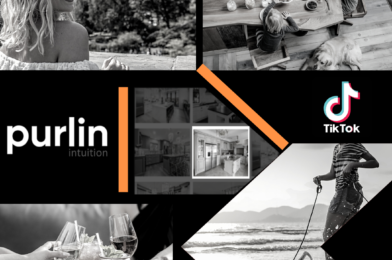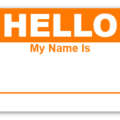A Practical Guide on How to Use TikTok in a Hyper-local Way to Find and Engage In-Market Clients.
At some point, your Gen Z friend or family member has probably passed you their phone, so you can laugh at whatever video of the moment has caught their attention. The app might even be on your own phone, nestled between Instagram and Twitter — even if you’re more of a lurker and scroller than a poster and creator. In any case, TikTok has firmly cemented itself as part of our daily lives. To many, the perception may linger that TikTok is primarily for personal expression and entertainment.
What may be less obvious is how TikTok has crept into our daily habits on a practical level, maybe even to the level of necessity. TikTok is not just for teens.
Two-thirds of the platform is 20 and older. And according to TechCrunch, as many as 40% “turn to apps like Instagram and TikTok instead of Google Search or Maps for discovery purposes.” What started as TikTokers learning where to eat, where to shop, where to go clubbing, and more, has evolved into the place people even turn to when they’re looking to buy a home.
So what does this mean for agents helping clients buy and sell homes? Sure, agents use other social media platforms to produce ads for listings and real estate content. And TikTok offers incredible reach, averaging about 1 billion monthly users. Its developers describe it as “the leading destination for short-form mobile video.” The question is, can TikTok be used in unique ways by actual agents for day-to-day business success, or is it simply the domain of real estate content creators and influencers?
The answer is yes, in ways you might not expect.
How to Intercept Clients: TikTok is the Ultimate First Engagement
Ok, so with all the new search habits, broad reach, and unmatched engagement, how do you actually get in-market buyers to find you? Think about how an in-market buyer who uses TikTok might begin their home search.
Google research indicated younger users “don’t tend to type in keywords but rather look to discover content in new, more immersive ways.” Consider this scenario:
Jordan is moving to New York City for their work and needs to find a home. Instead of going to Zillow or Realtor.com, their first instinct is to open up their TikTok app. With a simple search, TikTok connects them directly to short-form videos from local realtors highlighting homes in neighborhoods they’ve heard about and are interested in searching. They quickly get a sense of what’s available, and almost more importantly, the feel and vibe of each place. Two videos on SOHO condos grab their attention, and they immediately send comments and DMs (Direct Messages) to the realtors who posted the videos. The connection is made. Jordan’s ready for the next step. And the posting agents now have qualified leads, and they know what they like.
To intercept this in-market buyer, you might begin by leveraging broad hashtags with significant searches and views:
#realestate — 16.4 billion views
#realestateagent — 1.4 billion views
#realestateinvesting — 2.0 billion views
#homeforsale — 70.5 million views
Then, you may want to position your properties alongside the many features that draw people to a specific location and the lifestyle they’re trying to build. Along with the home type, select hashtags and keywords specific to the area (for example, ‘art district’). By including plenty of references to the town or neighborhood, you will come up in search results and recommendations that tie your listings to the amenities and attractions of the region.
How to Convert Clients: TikTok as the Ultimate Content
If a user has found your page and videos — what’s next? Once you’ve got the potential client on the hook, you can exploit the special qualities of the TikTok experience to keep them interested.
This platform is considered the most engaging social media platform due to the time people spend on it. The average TikTok session lasts around 10.82 minutes, more than double the average engagement on any other platform. When TikTok was in its infancy, videos were limited to 15 seconds. The maximum video length has expanded to three minutes, which explodes the creative opportunity for marketing a home.
Here’s where you flex your local insight muscle by adding things that make the neighborhood special, the “insider’s” view likely absent in an MLS description or on a home search site. And do it in an engaging, memorable, and highly personalized way. This is how you not only catch the attention of local in-market clients but also pre-qualify those locally in-market for your properties specifically, where you want to focus your attention.
The key to successful short-form video content is that it is highly relevant to users and answers their questions. But it will be sticky and stand out if it’s location-savvy and not generic. People are interested in understanding the local market and familiarizing themselves with a particular area. For example:
Guided tours of the property
Guided Neighborhood tours (amenities, parks, beaches, etc.)
“Live” outings at restaurants, sights, or popular gathering spots
Showcases of special qualities to look for (notable architects or materials for instance)
Walk-throughs of prepping a house
Dos and don’ts of the process
Videos like these help future clientele imagine what it’s like to live in a particular space — or get excited about buying, relocating, or investing.
TikTok’s in-app video editing tool, ready-to-use audio library, and features like ‘duet’ and ‘stitch’ make it easy to present homes in a creative and convenient way. The length of the video is entirely up to you. You might opt for a short-form teaser to quickly plug a new listing or record a more detailed, in-depth tour up to three minutes in length. Make sure you consider the purpose of the video and then create and edit it accordingly.
How to Show off Your Abilities: Demonstrate Your Commitment
TikTok users favor authenticity over insanely-curated content. Personal touch is the ultimate value-add.
TikTok videos are a place to showcase your personality, charm, knowledge, and expertise. You’ll begin building rapport with potential homebuyers before you even meet them. Then, when you greet them in person to show them a home, you’ve already established a level of professional respect and trust.
Tags : marketing tools for real estate online marketing for real estate agents proptech real estate agents tiktok for real estate



























